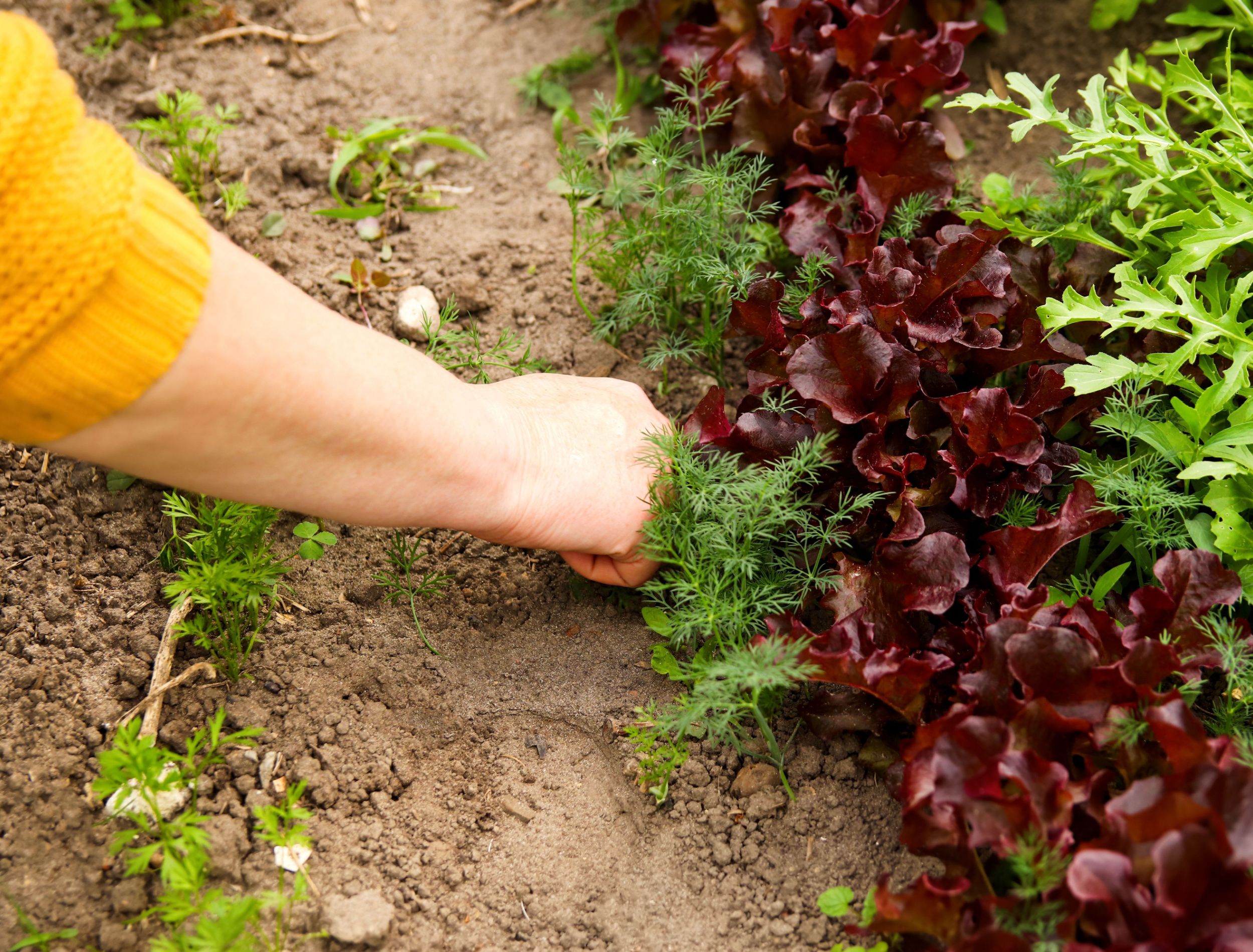People often add dill to different dishes, but dill plants also do well in the garden. Some herbs and vegetables, like basil and broccoli, as well as flowers, like marigolds, do really well with dill.
This guide will help you use this versatile herb to benefit plants in your garden. Here are 12 dill companion plants to help cultivate a healthy and productive garden.
Dill is a versatile herb that adds flavor to many dishes. Its fern-like leaves and tiny yellow flowers also make it an attractive addition to any garden. However, dill can be tricky to grow successfully on its own. The good news is that pairing dill with companion plants can help this herb thrive.
Why Companion Plant Dill?
Companion planting is the practice of growing different plants together to maximize garden space and yield. Certain plants just seem to “get along” when grown side-by-side. The benefits of companion planting include:
- Making efficient use of garden space
- Repelling pests
- Improving pollination
- Enhancing flavor
- Maximizing yields
When it comes to dill, choosing the right companion plants can really make a difference. Dill’s delicate leaves are irresistible to pests like spider mites and aphids. Pairing dill with plants that repel these pests or attract beneficial insects is key. Companion plants can also help dill grow better by improving soil nutrients or creating shade on hot days.
The Best Companion Plants for Dill
Here are some of the top companion plant pairings for dill
Vegetables
-
Asparagus – Dill makes an excellent companion for asparagus. Its shallow roots don’t compete for nutrients. Dill’s flowers also attract beneficial insects that keep asparagus pest-free.
-
Corn – Dill helps control corn pests like earworms and armyworms. Its flowers lure hoverflies that keep these insects in check.
-
Cucumbers – Cucumbers and dill are a classic pair, especially for pickling. Dill repels cucumber beetles. Both thrive in similar conditions.
-
Onions – Onions mask the scent of dill, repelling carrot flies. Onions and dill complement each other in recipes too.
-
Lettuce – Dill may help deter insects from munching on lettuce. Both prefer cool weather and moist soil.
-
Cabbage Family – Dill attracts beneficial insects that control cabbage loopers and other brassica pests.
Herbs
-
Basil – With similar growing needs, basil and dill make great companions. The scent of basil also helps repel some pests.
-
Cilantro – Cilantro and dill tolerate shade and cool temps. Cilantro’s flowers also attract beneficial insects.
Flowers
-
Nasturtiums – These colorful trailing flowers help keep pests away and attract pollinators to dill.
-
Marigolds – Marigolds repel nematodes, slugs and other creatures that could damage dill.
-
Cosmos – The bright flowers of cosmos attract beneficial insects to patrol for pests.
Plants to Avoid Planting with Dill
Some plants should not be paired with dill:
-
Tomatoes – Mature dill can inhibit tomato growth. Young dill boosts tomatoes though.
-
Peppers – Peppers and dill compete for nutrients, impeding growth.
-
Cucumbers – In small spaces, cucumber vines can overwhelm dill.
-
Carrots – Dill and carrot roots tangle, stunting growth.
Tips for Success with Dill Companion Planting
Follow these tips to get the most out of pairing dill with companion plants:
-
Allow plenty of space between plants. Overcrowding causes poor growth.
-
Use taller companion plants to provide afternoon shade for dill.
-
Stagger planting times so mature plants don’t crowd out young ones.
-
Use trellises and cages to contain sprawling companion plants.
-
Consider crop rotation each season to replenish soil nutrients.
-
Remove flowers from companion plants that could cross-pollinate with dill.
-
Mulch around plants to conserve moisture and suppress weeds.
-
Fertilize lightly to avoid promoting pest-attracting excessive foliage growth.
The Benefits of Companion Planting Dill
By pairing dill with well-suited companion plants, you can enjoy:
- Improved dill growth and flavor
- Higher garden yields
- Natural pest and disease control
- Better pollination
- Enhanced soil health
- Efficient use of garden space
The next time you plant dill, consider adding a few companion plants. This symbiotic pairing could be just what your dill needs to thrive!
Nasturtium
Jacky Parker Photography / Getty s
Nasturtiums can be a great plant to grow with dill and many other popular herbs and vegetables in the garden, just like marigolds. Nasturtium can protect garden plants by making dill work even harder to keep aphids away, just like onions and dill do together. This well-known companion plant is great for most garden beds because it brings in both pollinators and bugs that eat other bugs.
- Name: Nasturtium (Tropaeolum spp.)
- USDA Hardiness Zones: 2-11
- Light: Full sun
- Soil: Moist but well-drained, acidic, neutral, alkaline
Marigold
Ravinder Kumar / Getty s
Dill can help keep many annoying bugs away, but some bugs, like caterpillars and slugs, can still damage it. Fortunately, there are certain plants that can ward off these critters, including marigolds. Marigolds are considered one of the best companion plants, pairing perfectly with onions, squash, cucumber, and more.
- Name: Marigold (Tagetes spp.)
- USDA Hardiness Zones: 2-11
- Light: Full sun
- Soil: Evenly moist, well-drained, slightly acidic to neutral
How to Grow DILL from Seed & When to Harvest | Why we LOVE this herb & the BEST WAY to PRESERVE it
FAQ
What does dill like to be planted by?
What vegetables go well with dill?
Can I plant dill next to tomatoes?
- The Ultimate Guide to Growing Strawberries in Raised Beds - August 8, 2025
- No-Dig Garden Beds: The Easiest Way to Grow a Beautiful Garden - August 6, 2025
- How to Protect and Preserve Wood for Raised Garden Beds - August 6, 2025


:max_bytes(150000):strip_icc()/Gettys-1251737476-ede3cf6e07324c7e9a052638a8c19805.jpg)
:max_bytes(150000):strip_icc()/Gettys-1453800838-ed66c68ec53f4fc3ab56effbefd58927.jpg)